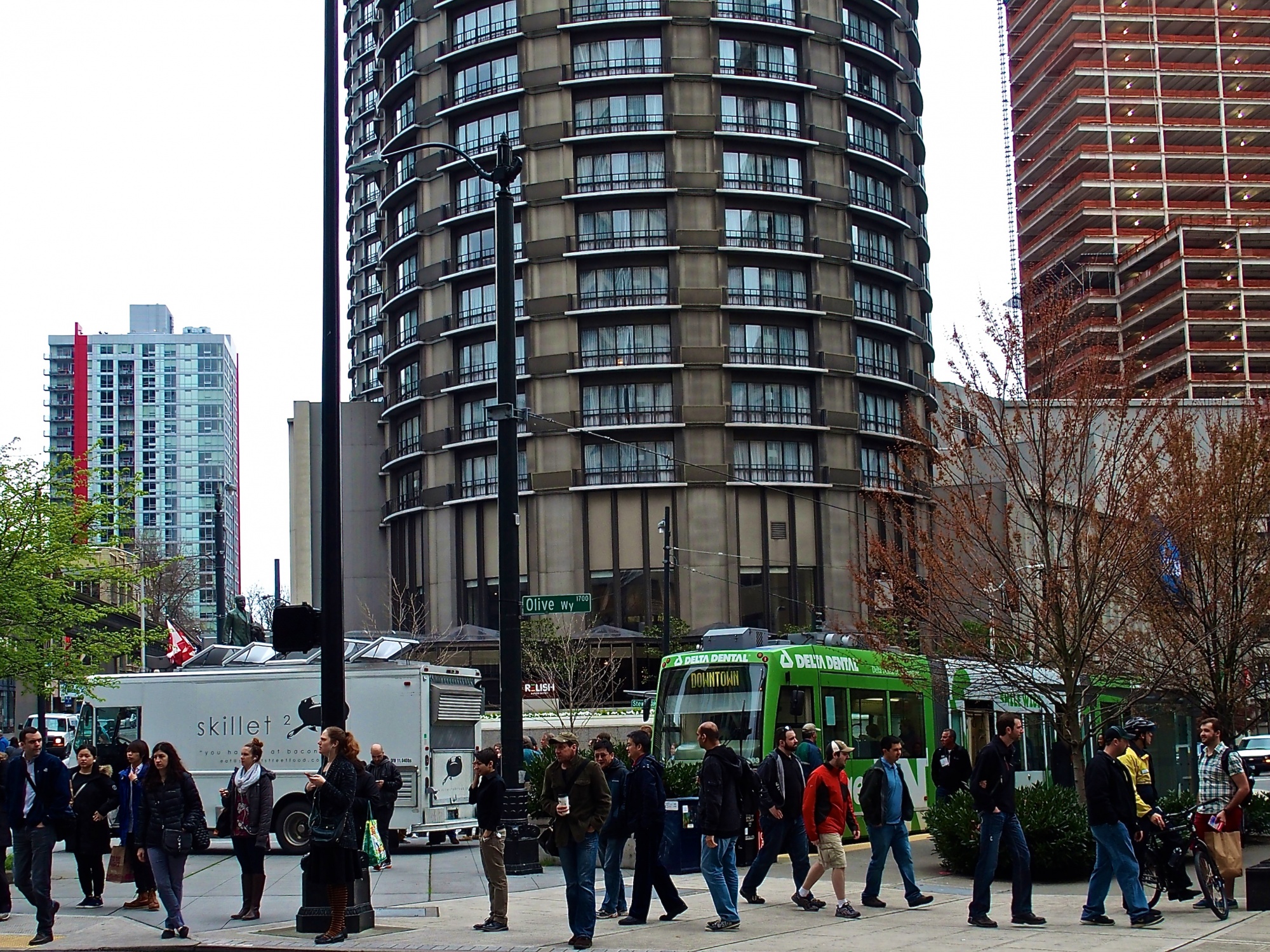Chuck Wolfe champions urban observation, emphasizing "ghosts" that are important to the authenticity of today's urban change, like oral histories among indigenous peoples passing on cultural traditions from one generation to the next.

Using his view of a Seattle urbanism trifecta---a streetcar, a food truck and one building of Amazon's new headquarters complex under construction---Chuck Wolfe reminds us what was there before, and the importance of urban observation to the urban development process.
Wolfe describes the Orpheum Theater that was demolished in 1967, and its street-level retail, and mixed office use. He advocates the role of purposeful observation and sensation in urban environments, to better understand the undercurrents and overlaps that form cities today.
This is critically important, he explains, because project advocacy, both pro and con, is often based on personal perception, observation or visual simulation, stylized in support or opposition to inevitable change. In the far-reaching essay that follows, he references pioneers from Allan Jacobs to Jan Gehl.
This approach—allowing for and explaining the stories behind our redeveloping cities—should not be viewed as antiquarian, academic or obstructionist, he says. Rather, it enhances the human capacity to simply look and remember:
[M]odern-day tool kits are lacking, in my opinion, because they often don't fully equip leaders in policy and decision-making to understand the multifaceted urban world. While we have recipes for code-drafting and repairing suburbs and sprawl, we don't have enough guides for public officials or staff to be confident in legislating many intrinsic elements of a successful urbanism... such as deriving place from placelessness, retaining authenticity, livability, intensity, integration, diverse public spaces and ways.
He adds several ideas for how the now-missing Orpheum Theater--however intangible and historical--could play a role in urban redevelopment or revitalization and more meaningful attention to the uniqueness of the setting, asking "does the ghost still have game?"
Wolfe concludes:
In sum, when framing urban issues, describing cities or developing profiles of a specific place, the detailed variations in the individual perceptions of urban dwellers and observers should not be lost. These subtle messages are often spurred by ordinary urban landscapes, icons, emblems, symbols and "context clues" within ready view, contributing to an understanding of why a place looks and feels like it does today, and what might now be missing but potentially renewed.
FULL STORY: Using Urban Observation to "Ghost-Bust" Cities

National Parks Layoffs Will Cause Communities to Lose Billions
Thousands of essential park workers were laid off this week, just before the busy spring break season.

Retro-silient?: America’s First “Eco-burb,” The Woodlands Turns 50
A master-planned community north of Houston offers lessons on green infrastructure and resilient design, but falls short of its founder’s lofty affordability and walkability goals.

Delivering for America Plan Will Downgrade Mail Service in at Least 49.5 Percent of Zip Codes
Republican and Democrat lawmakers criticize the plan for its disproportionate negative impact on rural communities.

Test News Post 1
This is a summary

Test News Headline 46
Test for the image on the front page.

Balancing Bombs and Butterflies: How the National Guard Protects a Rare Species
The National Guard at Fort Indiantown Gap uses GIS technology and land management strategies to balance military training with conservation efforts, ensuring the survival of the rare eastern regal fritillary butterfly.
Urban Design for Planners 1: Software Tools
This six-course series explores essential urban design concepts using open source software and equips planners with the tools they need to participate fully in the urban design process.
Planning for Universal Design
Learn the tools for implementing Universal Design in planning regulations.
EMC Planning Group, Inc.
Planetizen
Planetizen
Mpact (formerly Rail~Volution)
Great Falls Development Authority, Inc.
HUDs Office of Policy Development and Research
NYU Wagner Graduate School of Public Service



























